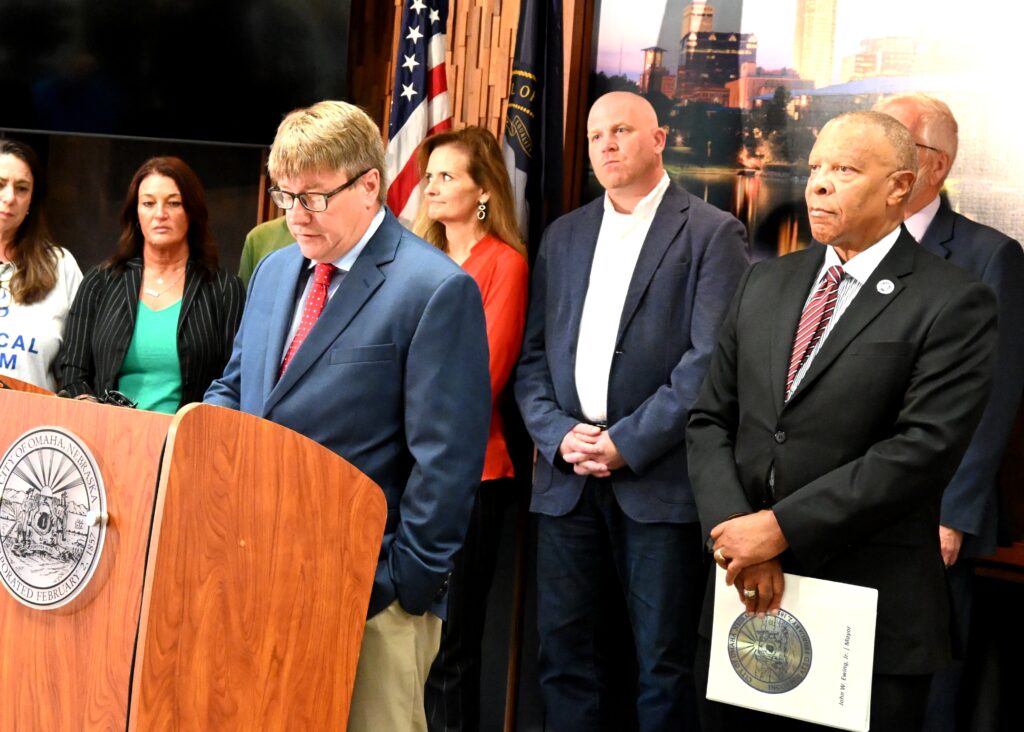
Omaha Mayor John Ewing announced a plan Monday to combat a rise in homeless encampments.
The proposed program introduces a partnership between the city and several metro area nonprofits meant to connect Omaha’s homeless population with needed resources.
“We are here to tell you about our measured approach today,” Ewing said, “because we believe that this is an issue that goes beyond just moving people and taking and destroying encampments.”
The mayor’s announcement is the latest idea for a homeless population that has found itself at a political crossroads. A recent increase in encampments prompted hundreds of complaints to the mayor’s hotline over the summer and sparked public debate among law enforcement and civic leaders. There are conflicting ideas on a path forward.
Ewing’s proposal came the day before a planned public hearing on an ordinance that, if passed, would prohibit unauthorized encampments on public property. The mayor’s office has asked that the City Council delay a vote on the ordinance for six months to allow the pilot program to get off the ground.
The ordinance, introduced by Councilman Brinker Harding, would require that police or first responders give people living in encampments the option of moving to a shelter before issuing a citation or making an arrest. Any person found guilty of violating the ordinance could face a fine up to $300, 30 days in jail, or both.
Ewing pushed back on that plan, labeling it as too costly and a drain on the Omaha Police Department, which is experiencing a shortage of officers. He noted that housing someone in jail costs about $170 per day and can contribute to the cycle of homelessness.
“While we understand that all involved here want to see our most vulnerable get the help they need, we disagree with an approach where individuals would be arrested and criminalized for being homeless,” Ewing said.
Instead, the city would partner with Threshold Continuum of Care, an area nonprofit that coordinates data and responses to housing needs for the Omaha metro area, including the annual point-in-time count. Threshold would lead several other nonprofits in connecting those experiencing homelessness with housing, mental health and career resources.
As the city identifies encampments, Threshold and its street outreach team would help notify occupants that they have seven to 10 days to vacate the property. The team also aims to grow and is fundraising to add numbers to its street outreach group.
In the past decade, Omaha has seen a rise in people experiencing homelessness, according to data compiled through an annual nationwide count.
Over the past three years, average rental costs in the metro area rose by 26.5%. Omaha’s rental occupancy rate sits at roughly 95%, making it the seventh-most competitive rental market in the nation, said Jason Feldhaus, executive director of Threshold.
“Families on fixed incomes, and seniors in particular, face extraordinary challenges,” Feldhaus said. “As a result, we see more seniors, couples and families and children experiencing homelessness.”
The post Omaha mayor disagrees on proposal to ‘criminalize’ homeless encampments, introduces pilot program appeared first on The Reader.






